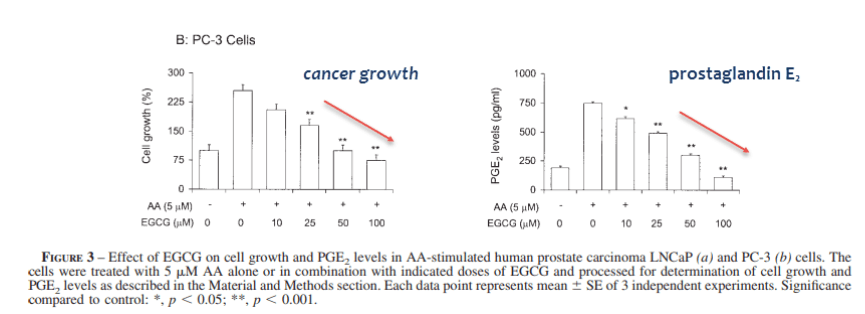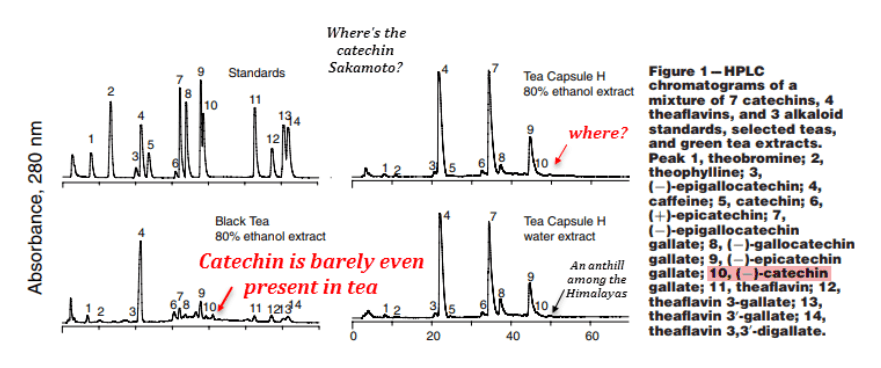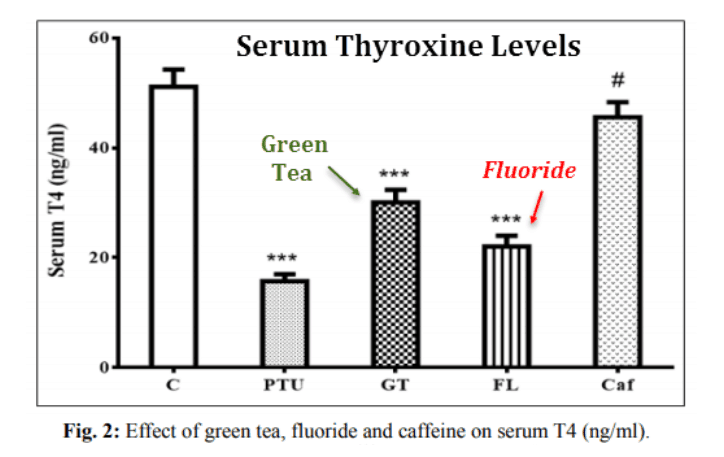
[cmamad id=”20773″ align=”center” tabid=”display-desktop” mobid=”display-desktop” stg=””]
Men in Japan are drinking THIS for healthier prostates…
—-Important Message—-
Woah! Look at This Weird Sex Practice in Japan
Older Japanese men are having more sex than any other men on the planet…
And it’s all because of this quiet revolution that’s taking place across the globe…

————
Why Japanese Men Get Prostate Cancer Less Than American Men
When explaining the disparate rates of prostate cancer between America and Japan, people often invoked the consumption of green tea in Japan.
This does seem plausible, as cancer has been inversely correlated with green tea directly…
Dose-dependent reductions have been observed for every cup consumed.
Studies show that green tea catechols lower cellular prostaglandin E2 levels and even inhibit ornithine decarboxylase, a polyamine-synthesizing enzyme.

These are two of the most powerful intracellular growth factors… Lowering them would almost certainly decrease cancer rates.
Prospective studies do not disappoint. Green tea catechols have been shown to halt the progression of precancerous lesions tenfold over controls.
“After one year, only one tumor was diagnosed among the 30 green tea catechol-treated men (incidence ~3%). Whereas nine cancers were found among the 30 placebo-treated men (incidence 30%).”
Epicatechin gallate – the most active catechol – inhibits aromatase.
It can even displace a high-affinity androgen from its receptor at low concentrations.
This catechol is a confirmed antihistamine, antiestrogen, and antiandrogen.
But is it also antithyroid? (That would not be good.)
[cmamad id=”20774″ align=”center” tabid=”display-desktop” mobid=”display-desktop” stg=””]
Or maybe the fluoride in green tea is responsible for the hypothyroidism in lab rodents…
…rather than the catechol.
Significant reductions in thyroid hormones were noted in 2001 (Sakamoto) using a green tea extract and rats. And then again in 2015 (Abulfadle) using brewed tea.
Yet, pure epicatechin gallate has never been directly tested for this.
Although Sakamoto did use an extract, this was Polyphenon 60 – an aqueous extract of green tea.
Fluoride is freely soluble in water… After the evaporation step, this ion would also become concentrated in the extract.
Yet, alcohol extracts of certain brands could still be okay. That’s because fluoride is 45 times less soluble in ethanol than in water.
Boron is an antidote to fluoride… So maybe you can have your cup of tea and drink it too (without getting goiter of course).
In both of Sakamoto’s articles, he never tires of mentioning that “catechin inhibits thyroid peroxidase.” Yet catechin is not epigallocatechin gallate (EGCG).
These are two distinct molecules with different binding properties:

Catechin is barely even present in green tea to begin with.
So maybe this is just either an irrelevant scaremongering tactic…
Or just a way to explain away green tea’s toxic effects without incriminated the government-mandated and beloved fluoride ion.

Fluoride is a classic goitrogen.
Although it fails to displace iodide directly in the thyroid, it does lower circulating iodide by inhibiting its reuptake in the kidneys.
In fact, fluoride had historically been used to treat hyperthyroidism for this reason.
And in rats, fluoride consistently causes the exact same hypothyroid symptoms that are blamed on green tea polyphenols.
Finally, in 2015, a group of Egyptian scientists used both:
As the sole source of drinking water, they gave rats either brewed green tea or sodium fluoride in water (at 30 mg/L).

I think this is about what you’d expect from the tea they used.
In making the tea used in this experiment, they added “100 ml of boiling water to 5 gm of green tea.”
Using a nominal value of 0.30 mg of sodium fluoride per gram of tea leaves, this tea could have contained up to 15 mg of fluoride per liter.
But the 30 mg of sodium fluoride used was only 45% fluoride by mass (the rest being sodium).
So the fluoride-water actually only contained 13.5 mg of fluoride per liter.
These two values are very close. So maybe the scientists chose the fluoride water concentration to match that of the brewed green tea.
Assuming incomplete extraction, it’s plausible that all antithyroid effects in the tea group were due to the fluoride ion.
So maybe the low incidence of hypothyroidism in Japan is because of their high iodine intake (averaging 1–3 mg per day).
But having fluoride-inhibiting iodine uptake in the kidney matters little with intakes this high.
“The augmentation of the goitrogenic effects of small doses of thiouracil by these anions and by fluoride is probably due to a competitive interference with the readsorption of iodide in the renal tubule.”
But green tea could still be a bad choice for Americans since they have an FDA-estimated intake of 150–550 μg iodine per day.
That’s six times less than the Japanese range.
Even though calcium is often seen as an antidote (and Americans do consume more calcium), this is only because it prevents fluoride incorporation in bone (skeletal fluorosis) and tetany (involuntary contraction of muscles) after massive doses.
Calcium actually does little to prevent the actual absorption of fluoride.
Boron is the more effective antidote: Boron binds fluoride and removes it from the body.
It’s fair to assume the green tea concentrates used in the Sakamoto studies were also concentrated with fluoride.
Although there is no direct data on fluoride in green tea extract, we can infer its presence from the toxicity reports:

These researchers undertook this research due to a significant number of published case reports involving both green tea extracts and liver damage.
There were enough cases reported in Europe that French authorities recalled some green tea products.
“This was followed by the publication of adverse event case reports involving green tea products.”
They reviewed the literature…
And they found that in every case the liver damage was caused by either a whole-leaf green tea supplement or an aqueous extract.
And both of those are high in fluoride.
Pure catechols have never been shown to cause liver damage.
Tea is notoriously high in fluoride.
Lightly-brewed green tea can have a concentration of 3.36 mg of fluoride per liter. This is higher than what’s been shown to cause liver damage.
“Therefore, our results suggest that drinking water fluoride levels over 2.0 mg/L can cause damage to liver and kidney functions in children and that the dental fluorosis was independent of damage to the liver…”
Since green tea catechols are more soluble in water than in ethanol, most companies just use water.
Municipal water can even add additional fluoride over the already high concentrations.
Camellia sinensis hyper-accumulates the fluoride ion.
And we can expect all major extracts to have concentrated levels…
For example, Polyphenon 60, Exolise, and Tealine are all aqueous extracts of green tea.
And all have been shown to cause liver damage.
“The patient reportedly was taking Green Lite Polyphenon 100-mg capsules for 6 months prior to admission. Green Lite Polyphenon is a hot water extract of green tea… The patient’s liver enzymes were elevated, her ammonia levels were increased…”
Fluoride also inhibits acetylcholine esterase. And it and can even lower melatonin output by hyper-calcifying the pineal gland.
Although pure epigallocatechin gallate is available, it is quite expensive.
Essentially all of these catechols originally derive from tea leaves…
And since this is “generally recognized as safe” most companies see no need for further refinement.
It seems there are no ethanolic green tea extracts on the market… So the best bet would be to take it with extra boron and iodide – which you can get from kelp.
Or just avoid green tea products altogether.
“DSI EC concluded that the safety information for green tea infusions arising from diverse sources provides a signal for the possibility of liver damage caused by products that contain concentrated green tea extracts.”
—-Important Message—-
New: Safe & Simple Protocol for Better Erections
Most men don’t realize how powerful this tiny organ is… It controls men’s erections and sexual health…
And most men’s organs slow down as they age, which can result in persistent erection problems and sexual performance issues…
Because this organ is like the gas pedal to the human body… when it’s pushed down, pedal to the metal, men start experiencing sex they way they did as teenagers…
They wake up with fantastic morning wood and they are getting firm, strong erections that last a long time…
Long enough for you to go an extra round or two with your sexy wife or girlfriend, or that cute young girl you just met…
And now you can try my safe and simple Protocol for men for FREE right now…
Click here to learn more about my new Protocol and try it out risk-free at no cost whatsoever…
————

https://www.food.actapol.net/pub/3_1_2007.pdf
Divi, Rao. "Inhibition of thyroid peroxidase by dietary flavonoids." Chemical research in toxicology (1996)
https://pubs.acs.org/doi/abs/10.1021/tx950076m
Sarma, D. "Safety of green tea extracts." Drug safety (2008)
http://www.academia.edu/download/38795794/00b4951b9ef63bfea3000000.pdf
Abulfadle, K. "Effect of excessive green tea vs fluoride and caff- eine on body weight and serum thyroid hormones in male mice " Journal of Physiology and Pharmacology Advances (2015)
https://pdfs.semanticscholar.org/32f4/6c72b28bbc04b845a7f0d6f7fd9f640aa86c.pdf
Belde, Chandrakanth. "Comparison of Polyphenols and Fluoride content in Commercial Brands." UW Stout (2011).
http://www2.uwstout.edu/content/lib/thesis/2011/2011beldec.pdf
Sakamoto, Y. "Goitrogenic effects of green tea extract catechins by dietary administration in rats." Archives of toxicology (2001)
https://www.ncbi.nlm.nih.gov/pubmed/11808919
https://prostate.org.nz/2014/12/5-steps-better-prostate-health/
https://prostate.net/articles/green-tea-prostatitis-treatment
https://www.avogel.co.uk/health/enlarged-prostate/the-best-drink-for-your-enlarged-prostate/
Prostate health plays an important role in men, more specifically as they age. It is natural for an individual to face prostate problems as a natural outcome of age-related disorders but the right balance of food habits and lifestyle can help alter it. Prostatitis or Prostate Hyperplasia is a condition that leads to Prostate enlargement. Chronic prostatitis is a condition which is an inflammatory disorder, which can be treated with antibiotics in the early stages. But in extreme conditions it is more prudent to pay attention to lifestyle change and dietary habits, to help control it.
Did you know that approximately 50% of American men between 50 – 60 years can contract Prostatitis?
Due to the enlargement of the prostate gland, it interferes with the natural discharge of urine. It puts pressure on the bladder which results in a feeling of urgency to urinate, weak urine flow and sometimes the inability to urinate. In extreme cases, it can cause damage to the bladder and kidneys.
What natural treatments can help prostatitis? Or does Green tea help prostatitis?
Medical literature talks a lot about the potential benefits of drinking green tea. Green tea consists of powerful antioxidants and has been considered a powerful antidote for prostate cancer and prostatitis. But it is interesting to note that one should not adopt caffeine-rich tea since caffeine can make the pain disorder worsen. Green tea also benefits the cardiovascular system of the body and has been found to regulate cholesterol levels naturally. Those who drink Green tea regularly have been found to have a lower incident rate in developing Alzheimer's and Parkinson disease.
The true power of Green tea is the presence of catechins that has numerous healing benefits. Significant research studies and materials hint at its ability to enhance the immune system. These catechins can destroy bacteria and viruses, which can cause cancerous growth and in a lot of ways to fight inflammation. Green tea is also rich in antioxidants and Vitamin E which regulates hormone production and stalls the infection that is caused by bacteria and viruses.
Research experts say, "Green tea is slowly adopted more openly by the masses than coffee, due to its antioxidant properties". Green tea consists of traces of Quercetin, which is believed to directly affect the development of prostatitis.
Interestingly, any urinary problems that are caused by prostatitis, has been found to be cured by the catechins found in Green tea. Men who drink more than 4 cups of Green tea every day, has been found to have a lesser probability of contracting prostate problems than those who may drink Green tea once every day.
However, it is recommended to have caffeine free Green tea, since any incidence of caffeine has been found to actually trigger incontinence issues.
Green tea also consists of Gallic acid, chlorogenic acid and other polyphenols which has anticarcinogenic properties. This keeps most of the prostatitis problems at bay. The presence of this compound also helps keep oxidative stress at bay and reduces metabolism effects that happen in the body. One should also make important lifestyle changes and include food in diets which can help naturally manage prostate problems.
Drinking less alcohol and increasing the intake of polyphenol-rich foods is a good strategy. Include more fiber and fruits in your diet. Foods can include Flax seeds, Soybean and peanuts as well as tomatoes. Green tea also has antiviral properties, which helps to prevent any bacterial infections of the prostate.

Leave a Reply